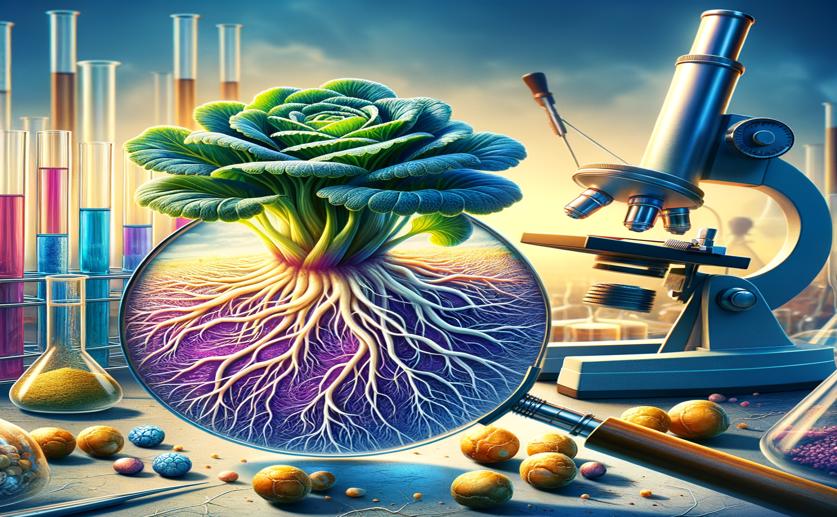
Nano-silicon and Sodium Reduce Damage from Low Potassium in Chicory
Jenn Hoskins
23rd July, 2024

Image Source: Natural Science News, 2024
Key Findings
- Researchers from Universidade Estadual Paulista studied the effects of sodium (Na) and nano-silicon (Si) on chicory under potassium (K) deficiency
- Adding nano-Si and Na to K-deficient chicory increased K accumulation by 60% and 50%, respectively, and improved K use efficiency by 79% and 62%
- Nano-Si reduced electrolyte leakage by 41% in K-deficient chicory, indicating better cell membrane stability and overall plant health
AgricultureBiochemPlant Science
References
Main Study
1) Nano-silicon and sodium mitigate damage by potassium deficiency in chicory.
Published 22nd July, 2024
https://doi.org/10.1038/s41598-024-67875-0
Related Studies
2) Na improves the growth of K-deficient but not K-sufficient kale.
3) Silicon (Si): Review and future prospects on the action mechanisms in alleviating biotic and abiotic stresses in plants.
4) Reinforcing the bulwark: unravelling the efficient applications of plant phenolics and tannins against environmental stresses.



 19th July, 2024 | Jim Crocker
19th July, 2024 | Jim Crocker